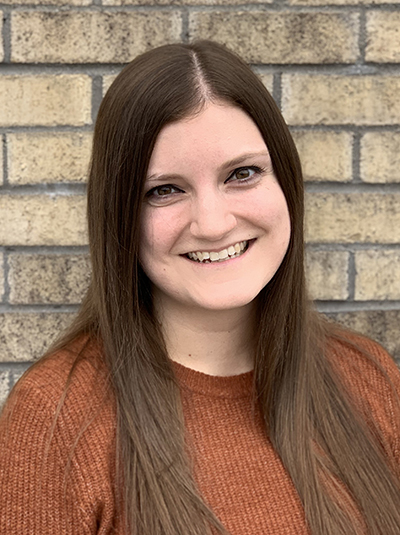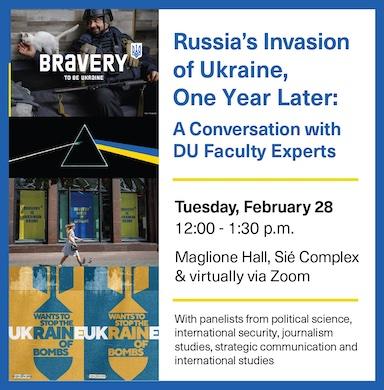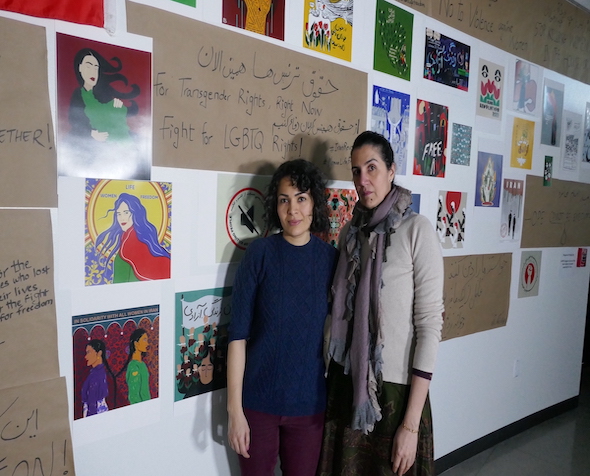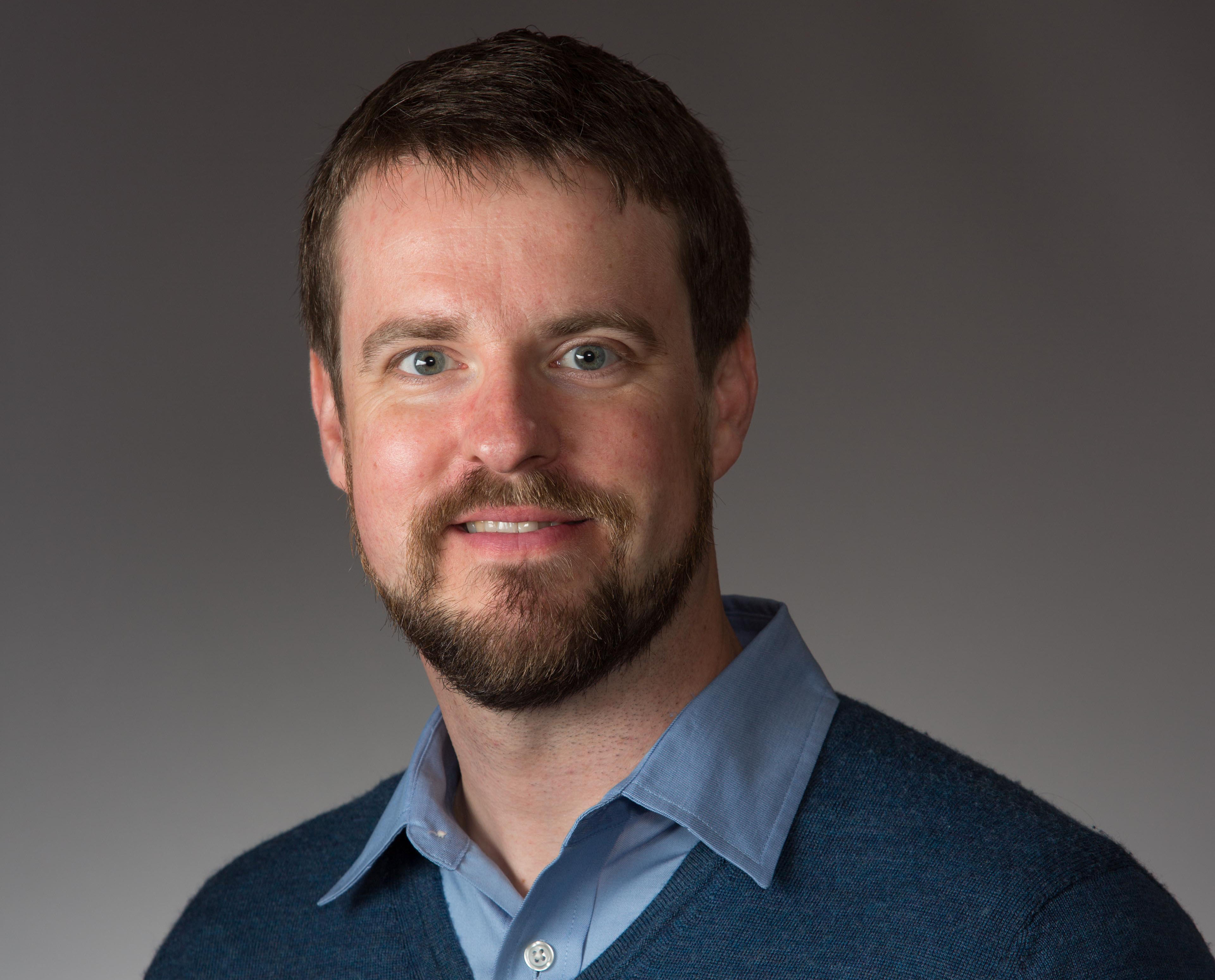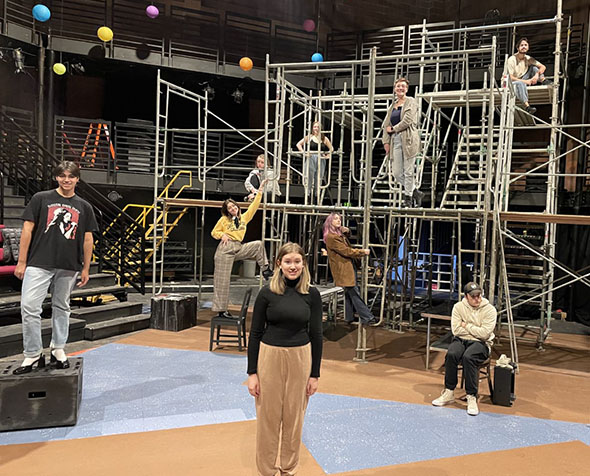DU Faculty Experts to Reflect on Russia’s Invasion of Ukraine, One Year Later
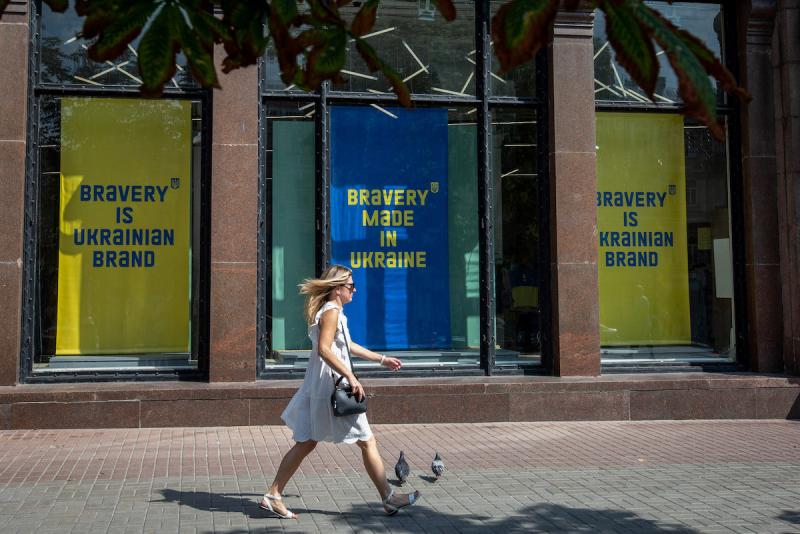
Russian President Vladimir Putin launched a full-scale invasion of neighboring Ukraine on Feb. 24, 2022. Thousands of Ukrainian casualties have been reported and millions have been forced to flee their homes.
One year later, the war has no end in sight.
The duration of the conflict is perhaps what has been most surprising thus far, according to Nadia Kaneva, associate professor and director of the MA in Media and Public Communication within the College of Arts, Humanities & Social Sciences (CAHSS) and of the Graduate Certificate in Public Diplomacy, offered jointly with the Josef Korbel School of International Studies.
“In many ways that's probably the biggest surprise because so many analysts, intelligence officers and politicians were saying that [the war would end quickly] and then it proved to not be true,” Kaneva said.
“We are, a year later at the point when we effectively don’t know how long this conflict will continue … We don’t have a clear sense of when it might end or how it might end.”
To mark this moment in time, DU is hosting a panel discussion at noon on Feb. 28 featuring multiple scholarly perspectives. Faculty panelists from CAHSS and Korbel will offer insights on the continuing relevance of the war for the U.S., Europe and the world.
The hybrid event, held in Maglione Hall at DU’s Sié Complex, will include an audience Q&A following the discussion. CAHSS Senior Associate Dean Andrea Stanton will moderate the discussion.
In addition to Kaneva, panelists for the event include:
• Seth Masket, political science professor and director of the Center on American Politics
• Lewis Griffith, professor, associate dean of academic programs and director of international security at the Josef Korbel School of International Studies
• Kareem El Damanhoury, assistant professor in the Department of Media Film & Journalism Studies and a faculty affiliate at the Center for Middle East Studies
• Marie Berry, Korbel associate professor, director of the Sié Chéou-Kang Center for International Security and Diplomacy and director of the Inclusive Global Leadership Initiative (IGLI)
The multi-disciplinary focus was intentional, according to Kaneva, as academic work can often be very isolating and doesn’t reach intended audiences of students, fellow faculty or the public on a regular basis.
“This is an opportunity for us to share some of this knowledge in a way that's more accessible to the DU community and to the general public and not just in a format that's designed for other academics to read,” Kaneva said.
The anniversary of the invasion also comes amidst several other ongoing global conflicts and events, including protests in Iran following the death of 22-year-old Iranian woman Mahsa Amini and the devastating earthquake in Turkey and Syria — among others.
Kaneva said she hopes the panel discussion will create space for a more nuanced conversation about the war that goes beyond what has come from news media or social media — sources that can lack historical knowledge or a long-term perspective.
Universities are the kinds of places where these “deeper conversations” need to take place, she added. The event also has personal significance for Kaneva as she is originally from Bulgaria.
“In a certain way, I feel like if we don't do this kind of thinking, big-picture thinking, grappling with difficult questions in a university setting, where else would this happen?” she said.
“That's one of the key purposes of universities – to be sources of enlightened thinking, of exploring new ideas, but also acknowledging all the different problems and failures that societies currently face and thinking of creative ways to deal with them,” Kaneva added.
